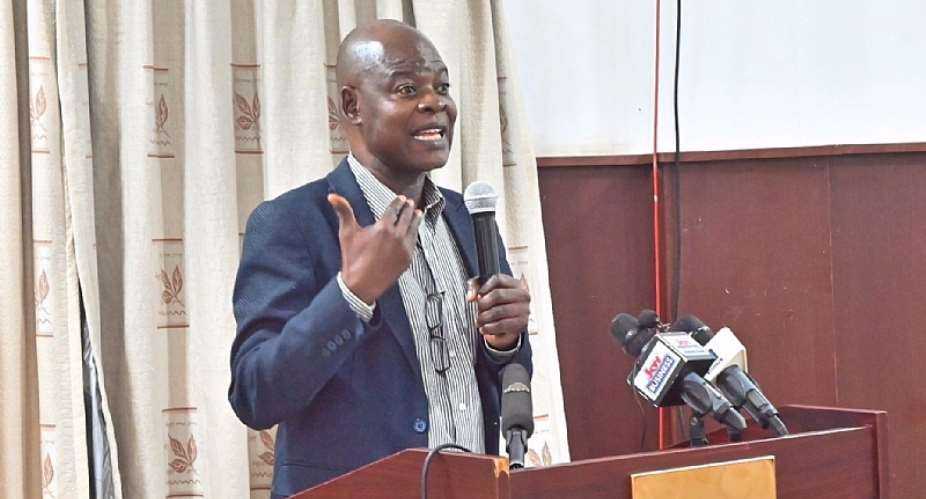
By Benedict ASHIEDU
For years, conversations around Africa and technology have focused on catching up.
Whether it be catching up with digital infrastructure, internet access, and even with data systems. But what if the next wave isn’t about catching up, what if it’s about leapfrogging?
As the world enters the AI era, Africa has something most don’t expect: a data advantage. Not because we’ve collected more data, but because we’re sitting on some of the most unique, untapped, and structurally diverse data sets in the world. Yes, our data looks chaotic.
But if you’ve ever been stuck in traffic in Lagos or Accra, you know chaos can be strangely efficient. If we build with intention, this could position the continent to lead, not follow the next chapter of innovation.
Africa’s data isn’t ‘behind’, it’s simply different
Western data systems were built in linear stages: from paper to spreadsheets to cloud. But in many African economies, formal structures skipped intermediate phases entirely. Health records might be handwritten in one hospital, and captured via mobile forms in another. Agricultural data might live in WhatsApp groups, or on blockchain-enabled supply chains.
It’s easy to view this as messy. But it’s also a rare opportunity: We can design AI systems that start with multilingual, multimodal, and context-rich data from day one. That gives Africa something Silicon Valley doesn’t have—raw exposure to the full spectrum of how information is actually generated and consumed in real-world conditions.
Mobile-first economies offer cleaner behavioral signals
Africa is the most mobile-first continent on the planet. Across sectors (banking, commerce, transportation), transactions and interactions are happening via mobile devices, often with less digital noise than in more mature economies. That means cleaner, more direct behavioral data for AI systems to learn from.
A fintech startup in Kenya can build a credit-scoring model using airtime purchases, mobile money transfers, and phone usage patterns, with no need for traditional credit bureaus. That’s not a limitation. It’s a creative redefinition of what financial data can be. And it’s only possible because the infrastructure doesn’t carry legacy baggage.
Local context matters, and Africa can lead in culturally adaptive AI
One of the biggest gaps in global AI today is its inability to understand local nuance.
A chatbot trained on U.S. data struggles to respond effectively in Nigeria or Senegal not just due to language, but due to context, tone, and unspoken cultural codes. Africa is home to over 2,000 languages, dozens of legal systems, and a mosaic of customs.
Training AI on such a diverse, non-Western data pool doesn’t just make it ‘African’, it makes it globally resilient. Imagine an AI system that understands not just English, but Pidgin, Twi, Yoruba, Amharic, or Wolof, and can detect tone, idioms, or culturally embedded norms. That’s a richer intelligence. And if built here, it can scale everywhere.
We need to rethink the AI stack from the ground up
To harness this advantage, Africa must resist the urge to simply import AI tools and systems built elsewhere. Instead, we should build an Africa-first AI stack that reflects how data is created, stored, and used here.
That means:
- Data governance frameworks that account for informal economies and communal ownership.
- Language models trained on regional dialects, speech patterns, and cultural nuances.
- Edge AI systems that work offline or with low bandwidth.
- Partnerships between governments, telcos, and startups to pool data responsibly and securely.
With the right regulatory environment and local investment, these systems can become exportable products, not just internal solutions.
The talent is already here, it just needs fuel
Across Accra, Lagos, Kigali, Nairobi, and Cape Town, I have met engineers, product designers, and analysts building incredible things often with limited resources. They are not waiting for permission.
But what they need is access: to compute power, to datasets, to funding, and to opportunities to collaborate with global institutions on equal terms. The African AI revolution won’t come from waiting. It will come from betting on ourselves.
Final thought
Africa’s future in AI isn’t a question of if. It is a question of how boldly we choose to act. We can treat our fragmented, multilingual, informal data landscape as a challenge.
Or we can recognize it as our superpower. If we build intentionally through local innovation, ethical design, and global collaboration, Africa won’t just catch up in the AI race. We might just set the pace.
>>>the writer is a business consultant and a recent MBA graduate from Duke University with a passion for business, policy, and African development. He can be reached via [email protected]
The post Africa’s untapped data advantage: How the continent can leapfrog in the AI era appeared first on The Business & Financial Times.
Read Full Story
















Facebook
Twitter
Pinterest
Instagram
Google+
YouTube
LinkedIn
RSS